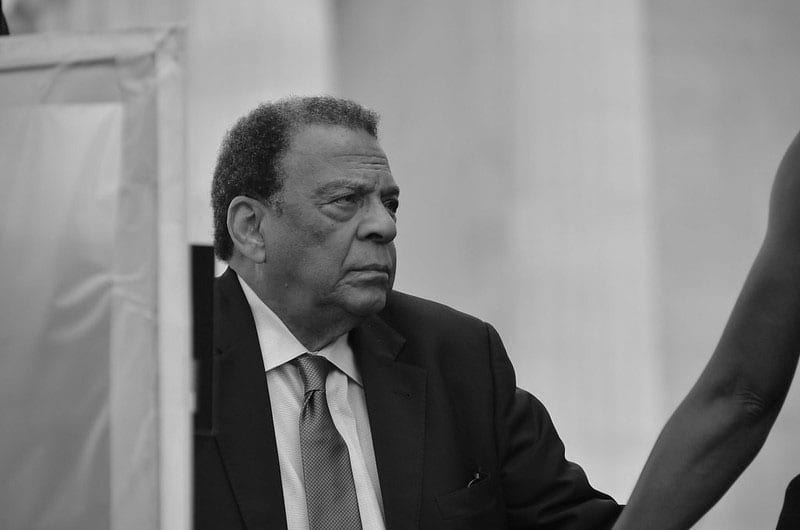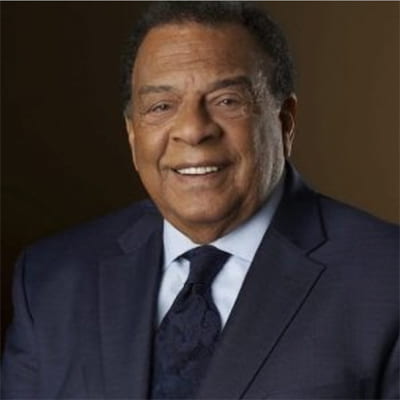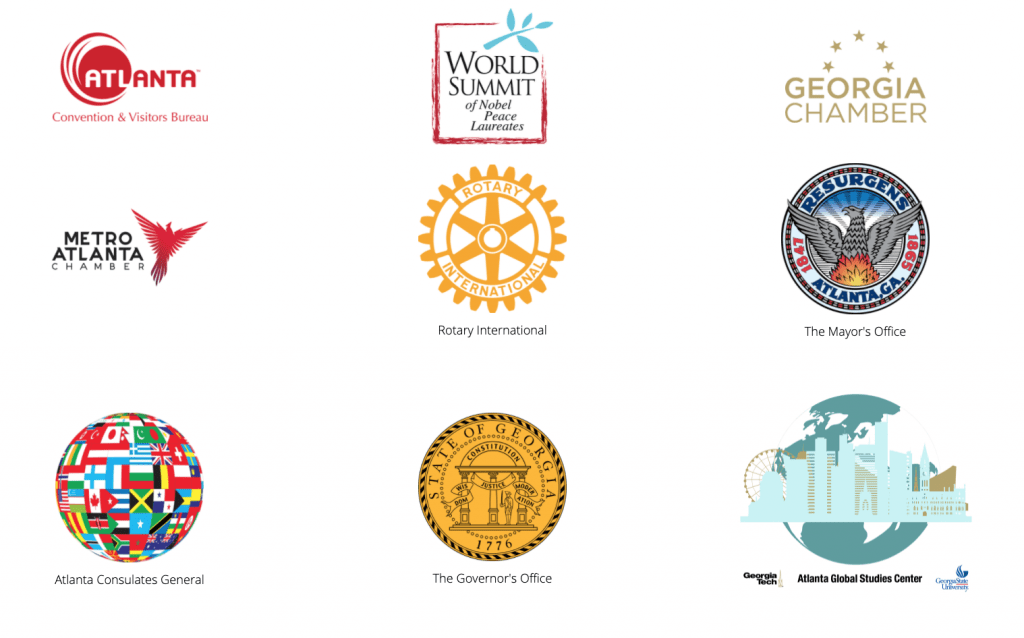“City of Peace” and the Atlanta Peace Initiative

“We’re a phoenix city that rose from the ashes of the civil war, we came together and decided that we were going to be a city too busy to hate”
Andrew Young
A city rebuilt from its ashes, Atlanta is an old city with new architecture. A pivotal city since the conception of the United States of America, her streets have witnessed immense history with enormous growth, growing revolutions, and revolutionary culture. Almost entirely burned to the ground during the civil war, the full richness of her past lives in her citizens rather than her architecture. Keeping history close in mind, Atlanta continues to rise from the ashes seeking to earn a voice of international scale. On a mission to become a “city of peace” and eventually a capital of peace, Atlanta’s journey has really only just begun.
What does “city of peace” mean?
“No city is 100% a city of peace, rather all are on the path to “becoming” a more peaceful city. Establishing a community as a peace city recognizes past achievements, encourages current initiatives, and inspires future generations for practical peace building”
The concept of cities of peace is a relatively new one. As the definition of peace and the definition of violence is constantly evolving, peace as an actionable movement has been spreading in cities across the world. The global community, International Cities of Peace, states that every city has a legacy of peace that can be built upon through collaboration, networking, and documentation. Departing from its conceptual, passive connotations, the term “peace” is moving to become proactive, collaborative, academic, and, most importantly, actionable.
In academics, research on peace is relatively sparse. To date, there are few scholarly papers specifically on the concept of cities of peace, one of which is “Idee und Geschichte der neuzeitlichen Friedensstadt” (Idea and History of the Modern City of Peace). Included in this paper are several general characteristics of cities that emanate and influence the global peace movement:
[expand title=”Summary of Cities” rel=”summaryofcities”]
[expandsub2 title=”Cities where a particular war has been successfully concluded (through a peace treaty)”]Philadelphia, Pennsylvania – Treaty of Shackamaxon; Addis Ababa, Ethiopia – Treaty of Addis Ababa; Berlin, Germany – Treaty of Peace Between Finland and Germany[/expandsub2]
[expandsub2 title=”Cities which are the seats of international institutions which are significant for the maintenance of world peace”]Geneva, Switzerland (International Peace Bureau); New York City, New York, United States (United Nations), Washington, D.C., United States (Carnegie Endowment for International Peace)[/expandsub2]
[expandsub2 title=”Cities where important peace prizes are awarded/places where peace is being celebrated and honored”]Paris, France (Félix Houphouët-Boigny Peace Prize); Bangkok, Thailand (N-Peace Awards); Brisbane, Australia (United Nations Association of Australia Community Award)[/expandsub2]
[/expand]
Considering Atlanta
Within the listed characteristics and the efforts of Atlanta’s greatest influencers, the city is on the pathway to emanating peace. From her rebirth out of the ashes of Sherman’s March to the Sea (a battle campaign during the Civil War that resulted in the complete burning of the city), Atlanta continues its brazen path with the influential figures of Martin Luther King Jr. (an Atlanta native and prominent activist of the Civil Rights Movement) and President Jimmy Carter (who is responsible for many significant humanitarian efforts). As of 2004, Atlanta has become the 250th member of the International Cities of Peace global community and has partnered with Rotary International (a nonprofit international service organization) in an effort to rebrand the as a “city of peace.” The Atlanta Peace Initiative has several ongoing research projects and educational integrations, of these includes peace asset mapping and Peace University. In 2021, Atlanta will be hosting the World Summit of Nobel Peace Laureates, a forum where peace leaders and organizations come together to discuss global issues with a focus on peace and human well-being.
Atlanta as a “city of peace”
In a united effort to rebrand Atlanta as a “city of peace,” the Atlanta Peace Initiative was established. Spearheaded by former UN ambassador and former Mayor of Atlanta, Andrew Young, API is an organization of community and business leaders who aim to transform Atlanta to a global city of peace, and create an ecosystem of peace.
What’s the point?
By rebranding Atlanta as a city of peace and creating a peace ecosystem, the Atlanta Peace Initiative hopes to revolutionize Atlanta on par with what the 1996 Summer Olympics were able to accomplish. Atlanta is a rapidly growing city, already of international importance in various manners. However, considering the city’s rich history and future prospects, the Atlanta Peace Initiative hopes to develop the city into the capital of peace, holding international influence in the peace conversation.
“We have a history and a heritage of peace that some of us have decided that we should institutionalize this, and we should brand Atlanta, not only as a civil rights city and an international city and a city too busy to hate, but Atlanta should be a city of peace… that brings the world together, in the world’s busiest airport, and has created an environment of peace and prosperity and nonviolent harmony regardless of race, creed, class or national origin”
Andrew Young
 |
 |
 |
| Andrew Young “If we can brand our city as a ‘city of peace’ and infuse that in our elementary schools, our universities as well as our business community, we will be surprised at what can happen” |
Jim Hannon “It’s a big vision. It would give Atlanta a global identity as the city of peace, and it would build on Atlanta’s legacy of civil rights and peace” |
Martha Brooks “It is an extraordinary opportunity for Atlanta to step up to our legacy and to offer positive leadership in a world full of incivility, conflict and inequity.” |
Who is API?
API is an organization of community and business leaders who aim to transform Atlanta to a global city of peace, and create an ecosystem of peace. Some API board members are Andrew Young, Former UN Ambassador and Former Mayor of Atlanta; Dr. Bernice King, CEO of the King Center; Jim Hannan, CEO of Enterprises Koch Industries; Egbert Perry, Chairman and CEO of The Integral Group, as well as other business leaders.
Goals of API
The general goal of API is to create an ecosystem of peace in the city of Atlanta, from hosting events like the World Summit of Nobel Peace Laureates, and building up institutions and organizations for education of peace.
The World Summit of Nobel Peace Laureates is one of the biggest events for representing peace leaders and people who’ve contributed to the promotion of peace. Peace organizations would come together to encourage and support peace and the well-being of humans in the world. API aims to host the event in Atlanta on a recurring basis.
API also works with universities in the Greater Atlanta region for the Atlanta Peace Education Project, including Agnes Scott College, Emory University, Georgia Institute of Technology, Georgia State University, Interdenominational Theological Center, Kennesaw State University, Morehouse College, Morehouse School of Medicine, Oglethorpe University, University of Georgia, and University of North Georgia.
“In higher education, this is where we find room for dialog, debate, and robust interaction. Higher education is also the single most transformative vehicle for change, for positive societal transformational change, in the service of public good. Higher education- this is where we find the leaders of tomorrow, where we support the leaders of tomorrow. The leaders of tomorrow- who will make the world a better place, entirely inline the Nobel Peace Foundation and Nobel Peace Prize stipulations. “
Anna Stenport, founding co-Director of the Atlanta Global Studies Center (AGSC)
API: Who is involved?
API is a vast network of organizations consisting of various business leaders and community organizations.

- Atlanta Convention & Visitors Bureau: “The official destination marketing organization for the city and serves to favorably impact Atlanta’s economy through conventions and tourism.”
- World Summit of Nobel Peace Laureates: “The World Summit of Nobel Peace Laureates was initiated by Mikhail Gorbachev in the 1990s, as a forum in which the Nobel Peace Laureates and the Peace Laureate Organizations could come together to address global issues with a view to encourage and support peace and human well being in the world.”
- Georgia Chamber: “The Georgia Chamber of Commerce is a statewide membership organization centered on a mission of pro-business advocacy and headquartered in Atlanta, Georgia”
- Metro Atlanta Chamber: “The Metro Atlanta Chamber of Commerce is the chamber of commerce for the Atlanta metropolitan area, founded in 1859”
- Rotary International: “Rotary International is an international service organization whose stated purpose is to bring together business and professional leaders in order to provide humanitarian service and to advance goodwill and peace around the world. It is a non-political and non-religious organization open to all.”
- The Mayor’s Office: Oversee a city’s main departments, including the police, fire, education, housing, and transportation departments.
- Atlanta Consulates General: The Embassies and consulates settled in Atlanta, including more than 4o different countries.
- The Governor’s Office: The current Governor of Georgia is Brian. P. Kemp. Some formal responsibilities of the Governor Office include making appointments to the state judicial branch, deciding whether to grant clemency to state prison inmates, and preparing the state to deal with emergency and crisis situations.
- Atlanta Global Studies Center: A partnership of Georgia State University and the Georgia Institute of Technology. “Our mission is to enhance access to advanced language learning and to help deepen knowledge of global and intercultural issues for students, faculty, and the public.”
This module is inspired by and a reflection on the Atlanta Peace Initiative’s webinar on their future goals and purpose in focusing on Atlanta as a “City of Peace.” We strongly suggest checking out our student-made podcast covering the webinar highlights as well as the actual webinar in its completeness if possible.